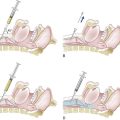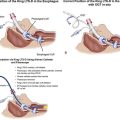
Chronic kidney disease (CKD) is a serious complication that people do not tend to notice until it has progressed to advanced stages. Our kidneys are important in balancing our body‘s functions, like filtering water, regulating blood pressure, and balancing electrolytes. In recent years, the prevalence of this chronic condition has had a significant spike, affecting millions. It is important to be aware of strategies to prevent and manage kidney disease.
This blog offers tips and approaches to care for and treat chronic kidney disease, including medication that patients can take.
What happens when you have CKD?
Chronic kidney disease (CKD) is a condition where the kidneys slowly become unable to filter excess water and fluids from the body. CKD can be caused by conditions like diabetes, hypertension, and glomerulonephritis.
- Toxic waste products and excess fluid then build up in the blood, a disease called uremia or end-stage renal disease (ESRD), which is life-threatening.
- Those with CKD are at risk for complications such as hypertension, cardiovascular disease (CVD), anaemia, and electrolyte imbalance. If CKD progresses to end-stage kidney disease, a treatment like dialysis or a kidney transplant is required in order for the individual to stay alive.
What are the symptoms of CKD?
Here are the signs and symptoms of chronic kidney disease:
- Skin problems
- Difficulty in breathing
- High blood pressure
- Metallic taste in the mouth
- Confusion or brain freeze
- Fatigue
- Swelling in legs, ankles, or eyes
- Difficulty in urinating
- Nausea and vomiting
- Loss of appetite
What is the most common risk factor for kidney disease?
The most common risk factors for CKD are
- Age
- Family history
- Obesity
- Diabetes
- Hypertension
What are the preventive strategies for kidney disease?
Here are 6 effective prevention strategies for chronic kidney disease:
- Maintain a proper diet
A well-balanced diet can improve kidney function, which in turn also enhances a person’s well-being.
- Limiting sodium intake is important for maintaining blood pressure levels, as excessive salt intake can lead to hypertension, a significant risk factor for kidney damage.
- Reduce the intake of processed foods and sugary foods, as this not only helps manage blood pressure but also stabilises blood sugar levels, reducing diabetes-related kidney complications.
- Hydration
Try to stay hydrated, as it supports kidney function by helping to flush out toxins.
- While an individual’s needs may vary, it is important to drink at least 5 litres of water daily.
- If you have a disease that requires you to limit water intake, discuss it with your doctor to determine the right amount for you.
- Physical activity
Physical activity can have a positive impact on kidney function. It helps reduce weight, lowers blood pressure, and decreases the risk of type 2 diabetes.
- Aim for at least 150 minutes of mild aerobic activity each week, such as brisk walking, cycling or swimming.
- Try incorporating strength training activities into your routine at least twice a week.
- Check for blood sugar and blood pressure
Hypertension and diabetes are certain risk factors that require regular check-ups in order to be controlled.
- Both blood pressure and blood sugar monitoring help in early detection and proper treatment.
- Maintaining these levels in the normal range can significantly reduce the risk of kidney disease.
- Discuss with your doctor to devise a monitoring plan that will fit your schedule.
- Say no to smoking and alcohol
Tobacco and alcohol: Smoking can cause harm to the kidneys in countless ways. Cigarette smoke constricts blood vessels.
A reduction in the blood supply to the kidneys increases the probability of developing kidney disease. Stopping smoking right away can improve your health considerably and reduce your risks a great deal. Moderating your exposure to alcohol could help to keep your blood pressure in check and improve kidney health. Women should have no more than one drink a day, and men should have two at most.
- Routine check-ups
For those with diabetes or hypertension, the health of the kidneys should be monitored closely. Regular checks also help with early disease detection and delay the development of kidney diseases.
What medicines are used to treat CKD?
Early medical attention can help resolve the issue of CKD. This helps control the advancement of the disease and improves a person’s overall quality of life.
Drugs that are used to control kidney disease fall mainly under two categories/styles of action. Common categories include:
- Antihypertensive: Medicines such as Angiotensin-Converting Enzyme (ACE) inhibitors (e.g., Lisinopril, Enalapril) and Angiotensin II Receptor Blockers (ARBs) (e.g., Losartan, Valsartan) aid in blood pressure regulation and benefit kidney function.
- Diuretics: Diuretics (e.g., Furosemide, and Hydrochlorothiazide) are also known as “Water pills.” They decrease the kidney’s workload by flushing out extra fluids and help regulate blood pressure.
- Glucose-lowering agents: Diabetes can be treated with drugs like metformin and newer drugs like SGLT2 inhibitors that lower blood sugar levels. Thus, these drugs not only work as diabetic medicine but may also prevent renal damage by normalising the levels of glucose in the body.
- Phosphate binders: When the kidney fails, it loses the ability to excrete phosphorus, leading to high levels of phosphate in the body. Phosphate binders (e.g., Sevelamer, Calcium acetate) combine with phosphate in the small intestines, preventing it from entering the bloodstream and maintaining normal phosphate levels, reducing complications.
- Vitamin D supplements: Vitamin D helps maintain bone health and regulates calcium levels in the body. As kidney function declines, the body cannot convert vitamin D into its active form, resulting in deficiencies. Vitamin D supplements are important to fulfil the requirements of vitamin D in our body.
Importance of adherence
It is important to follow the prescribed medications to manage CKD effectively.
Follow-up visits to the relevant health care practitioners may be useful to modify the dosages and change the drugs if necessary to enhance the management of kidney disease.
Advanced options: kidney transplant
But if the kidney is badly damaged, then one is advised to undergo a kidney transplant. A kidney transplant is a surgical operation in which a diseased kidney is removed from a patient, and another kidney from a donor is placed in its place. Though transplants do enhance the quality of life of patients, they called for long-term medications to avoid transplant rejection, besides managing other health complications.
Wrapping up
Chronic Kidney Disease is a serious condition with the potential to cause many complications in other organs, but there are ways to protect yourself from it. By knowing the causes of kidney diseases, living a healthy life, and using medicines wisely, you can prevent kidney diseases and control those already present.
It is also important that people living with kidney disease see their doctors for periodic check-ups, as this will help the physicians properly recommend methods for preventing or managing the disease that suit the particular individual.






